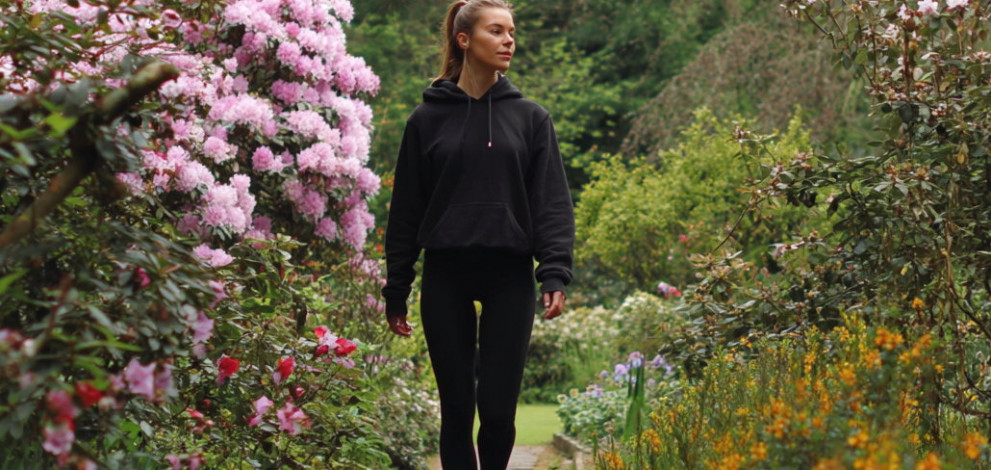Walking is perhaps the simplest and most enjoyable form of exercise accessible to individuals worldwide. However, if you are trying to maximize how the walk works for you, you may be wondering: When is the best time of day to walk? Should I walk in the morning? Afternoon? Or evening?
The answer is that it depends on your goals, lifestyle, and your body clock!! In this article, we will discuss how the timing of the walk will impact energy, metabolism, digestion, sleep, and mood. That way, you can decide what allows you to benefit from walking the most!
1. The Importance of Time
Anytime you can get a walk in is better than not walking. The American Heart Association recommends that adult individuals aim for a minimum of 150 minutes of moderate-intensity activity per week (for most people, that’s 30 minutes, five days a week of brisk walking).
The time of day you choose to walk shapes your body’s response—affecting energy, metabolism, digestion, and sleep. Understanding these effects can help you create a consistent walking routine that works best for you.
2. The Morning Walk
There are several benefits to starting your day off with a walk:
More energizing/moods: A morning walk, especially outside, in nature and natural light, increases alertness and helps set a positive tone for the day.
Fat Burning: Some studies indicate that walking in a fasted state (before breakfast) may be more favourable for burning fat, plus, morning walks may help reset your metabolism for the day.
3. Afternoon/Post-Lunch Walks
As with morning walks, taking a walk after a meal may provide a variety of specific advantages:
Aiding digestion: A light walk about ten to fifteen minutes after eating may stimulate your digestion, reduce bloating, and help regulate your blood glucose, an important consideration for those who are metabolically impaired.
Energy bid during the mid-day slump: It is common to experience a slump in the mid-afternoon, and with whatever sedentary time you have consumed, taking a walk may help to break that cycle, enhance blood flow to both your brain and the muscular system, or even have a positive effect on your cognitive function for the remainder of the day.
Scheduling flexibility: Afternoon walks may be a better option for individuals with morning commitments or for those who are not early risers. Afternoon walks also promote convenience as there is much less to prepare for than either morning or evening walking.
Cardiovascular benefits: Some studies suggest that walking later in the day may lower cardiovascular risk factors by breaking up otherwise long periods of sedentary behavior.
Caveats: If you have a work-related schedule during mid-day hours or prolonged heat and humidity prohibit you from considering walking during the day, try to find a shaded path or map out a walk time when the heat or humidity is reduced. Be mindful where you are walking; depending on the urban landscape, the air quality may be worse during the late afternoon.
4. Walking in the Evening
- Relaxing and relieving stress: After a long workday, a walk is a way to unwind and lower your levels of cortisol (stress hormone), and clear your head in preparation for being in bed.
- Improved digestion & blood sugar control: Taking a walk after dinner potentially decreases unhealthy snacking, improves digestion, and postprandial blood sugar surge.
- Muscle preparation: As later day progresses and the evening progresses, you are typically warmer and have better muscle capabilities, so you may walk more easily or slightly quicker.
- Things to consider: Walking too late, or too fast, or too close to bed, may disrupt your sleep (for some people). Make sure your walk allows you to wind down to go to bed. Air pollution and traffic may be worse in the evening in certain areas.
Practical Recommendations for Selecting Your Walking Time
- Select a time that you can realistically commit to walking daily — it’s generally more effective to choose consistency over timing perfection.
- Assess your time commitments, energy, local weather, and air quality.
- If you are walking early in the morning or after a prolonged period, a warm-up and stretching of your muscles are recommended.
- If you are walking after eating, walk at a light to moderate walking pace (avoid strenuous exercise). After breakfast, or after lunch/dinner, 10-15 minutes of friendly walking is quite effective.
- Your walking route should be safe and clean (not polluted – ideally with good lighting and level footing), especially if walking early morning or late evening.
- You can make walking part of your habitual stack (with things you already do) – after your tea, on your home commute, before dinner, etc.
- If you feel tired, sick, etc., rather than defaulting simply to “designated”, instead, just choose easier times.
Final Takeaway
Walking is very good for you, and when it is done consistently, it is better than just waiting for the “best” hour. It does not matter when you walk in the day – in early morning, a brisk walk after lunch, or a gentle walk in the evening, you will do goodness for yourself.
Find a time that you can consistently stick to, think about your purpose (energy burst, digestion, unwinding from a busy day), and get moving. You will eventually find that a walking habit integrates well into your life and will benefit your health, weight maintenance, mood, sleep, and quality of life.
So, what is the best time of day for you to walk? Choose a time, set a reminder, and take your first step today.


